2019 Annual Conference
The Atlantic as a platform
for science & technological impact
September 30th
2019 Annual Conference - Speakers & Presenters
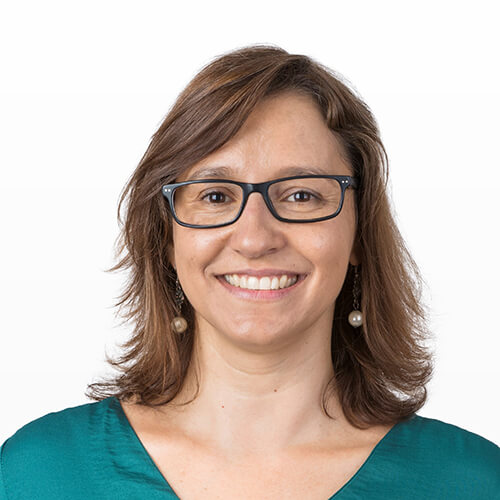
Alexandra Moutinho
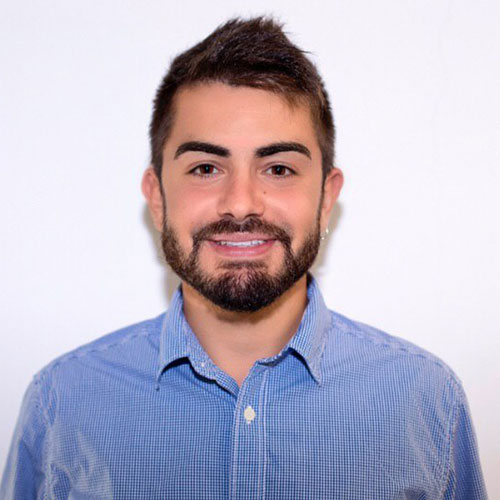
Andrea Tassi
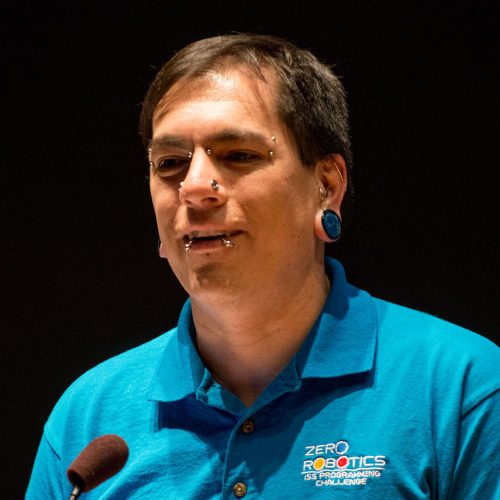
Alvar Saenz-Otero
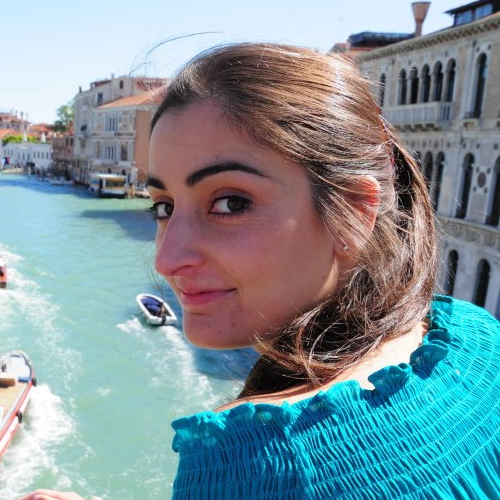
Ana Patrícia Oliveira
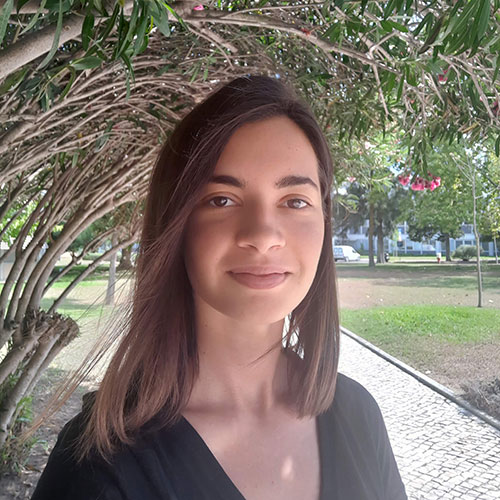
Ana Rita Machado
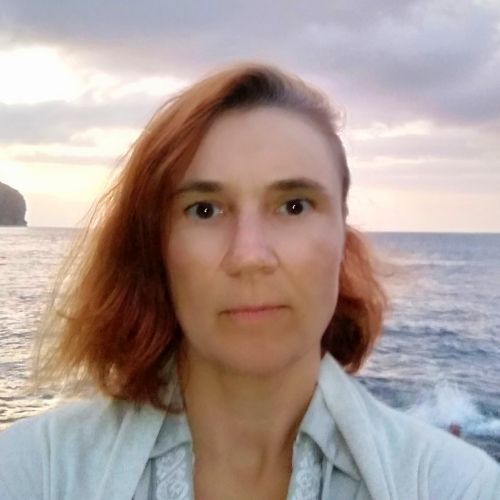
Anna Morozova
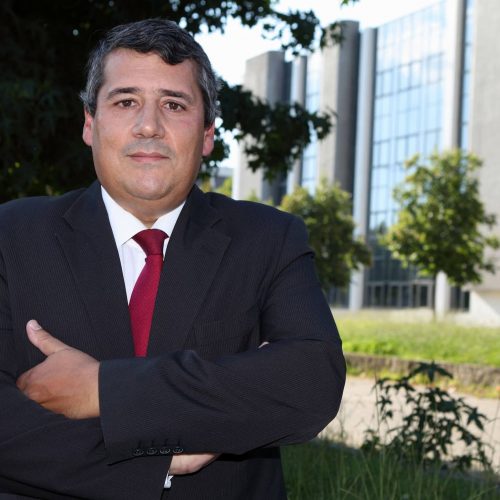
António M. Cunha
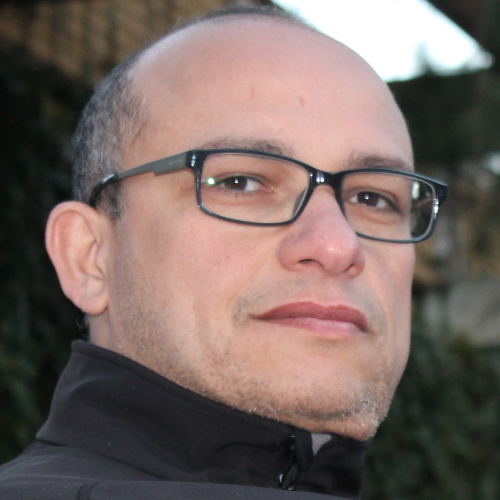
Artur Gil
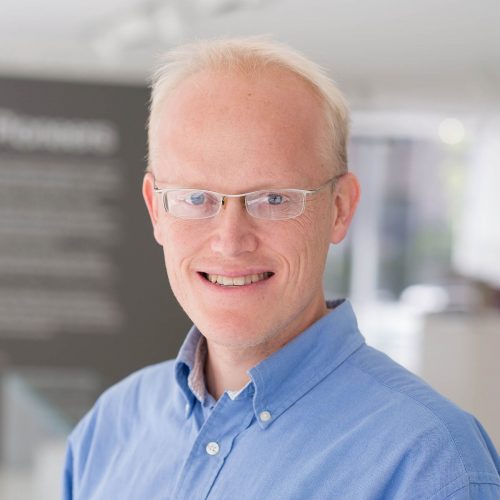
Audun Botterud
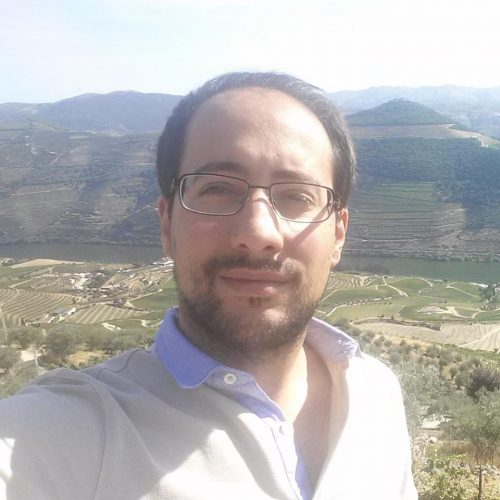
Bruno Cardoso
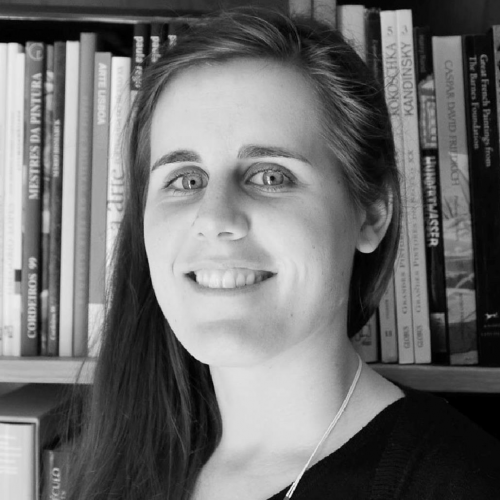
Carla Rodrigues
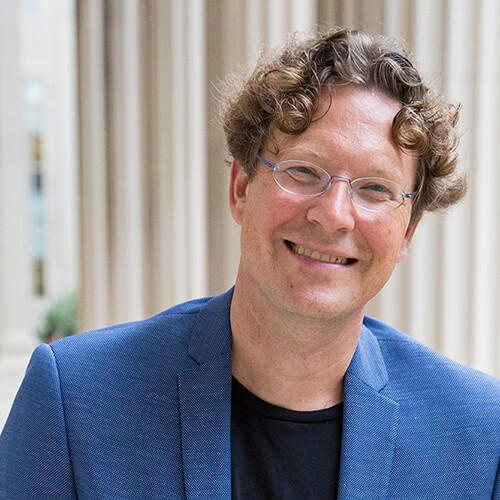
Christoph Reinhart
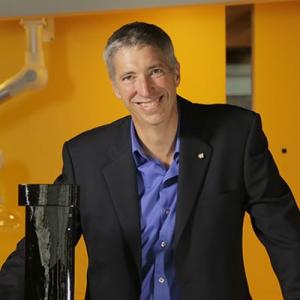
Doug Hart
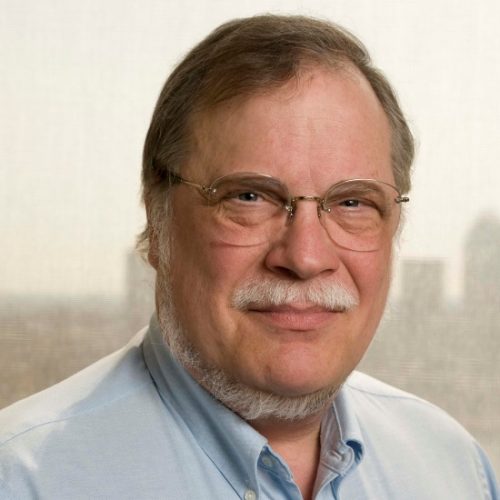
Ed Boyle
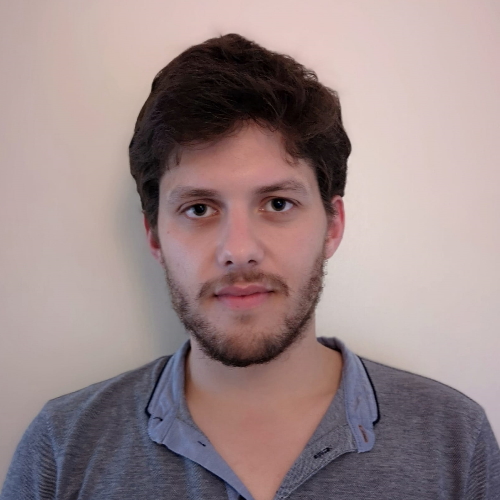
Fábio Daniel Correia
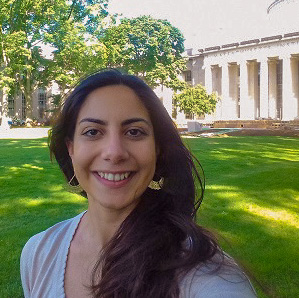
Fabiola Pereira
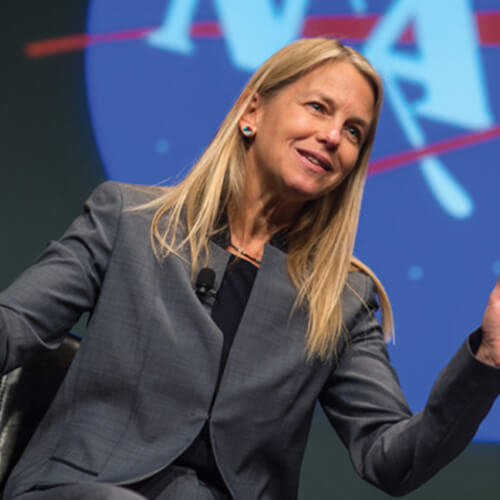
Dava J. Newman
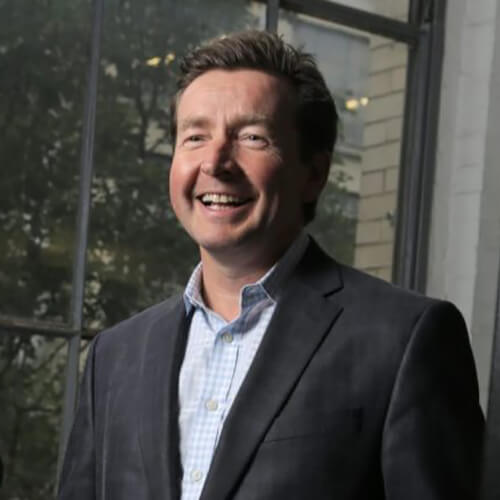
Gareth H. McKinley
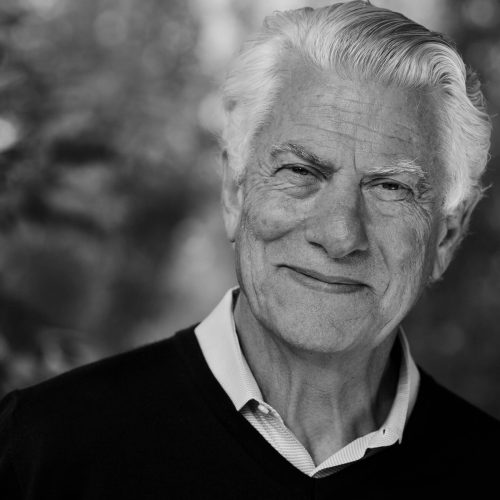
Guillermo Trotti
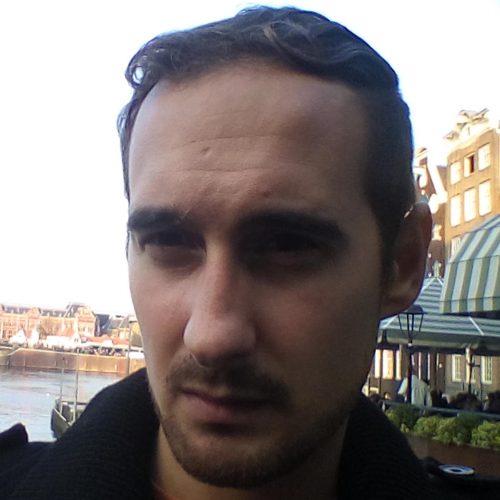
Hugo Algarvio

Inês Reis
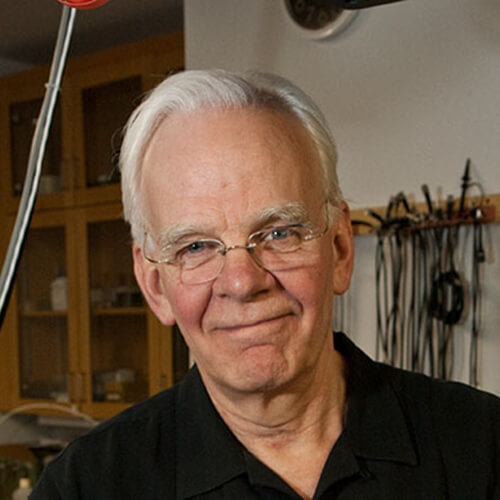
Jim Anderson
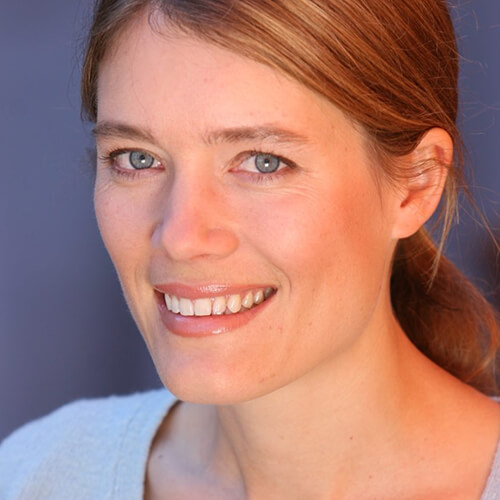
Jessika Trancik
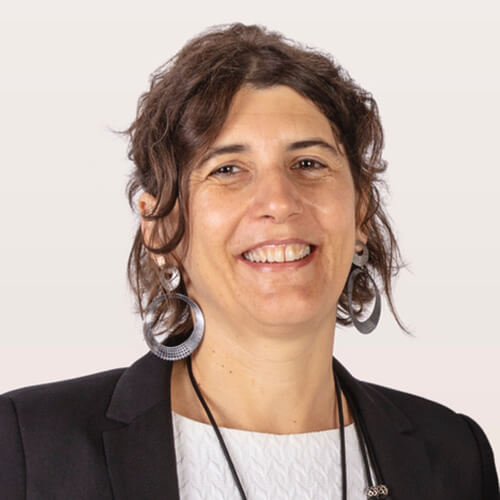
Joana Mendonça
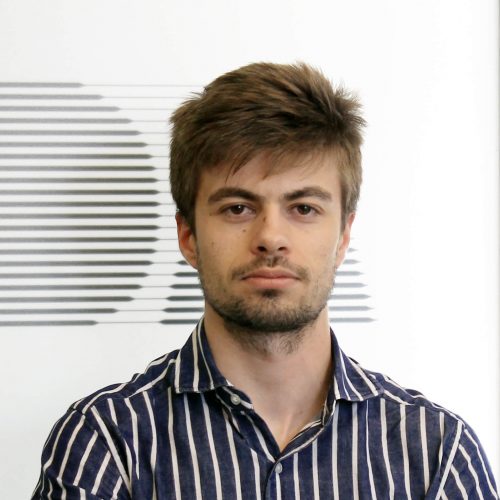
João Carvalho
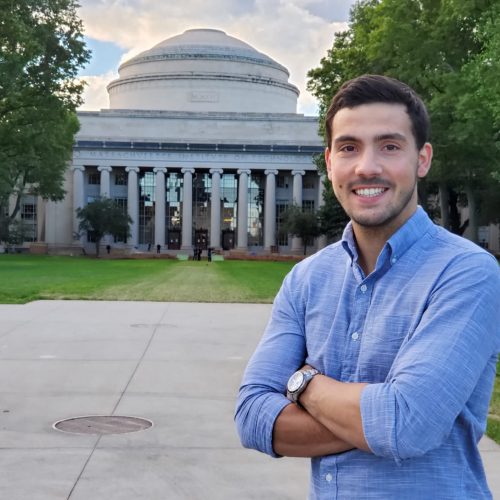
João Pedro Silva
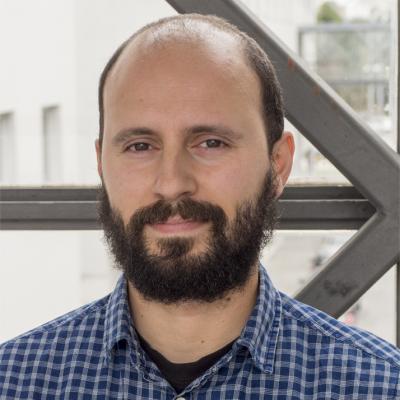
João Pereira
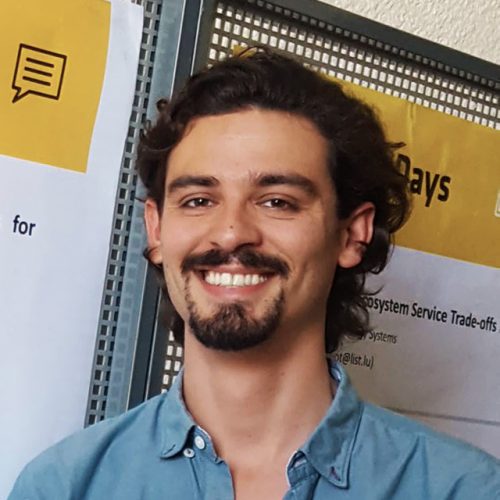
Jorge Marques Silva
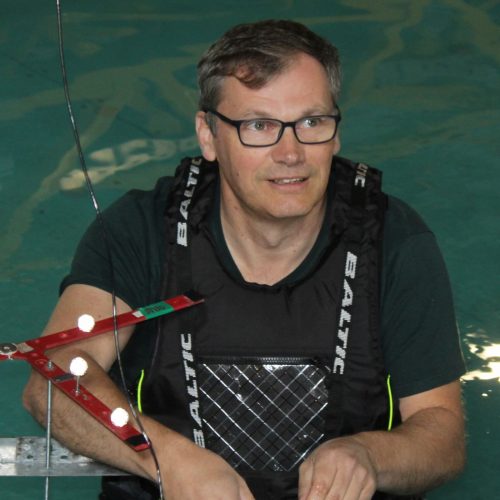
José Gaspar
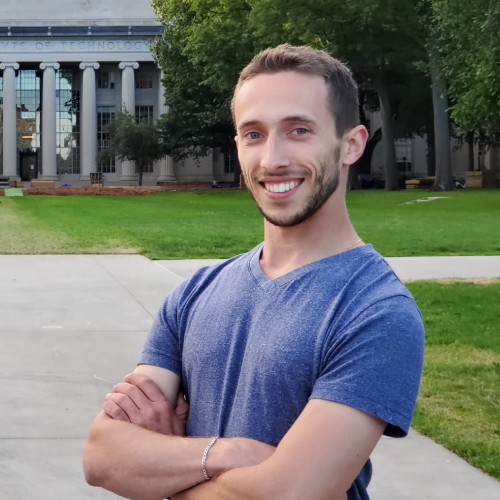
José Simões
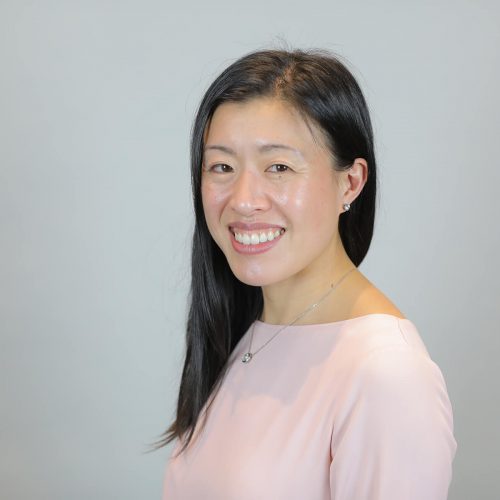
Kimberly Jung
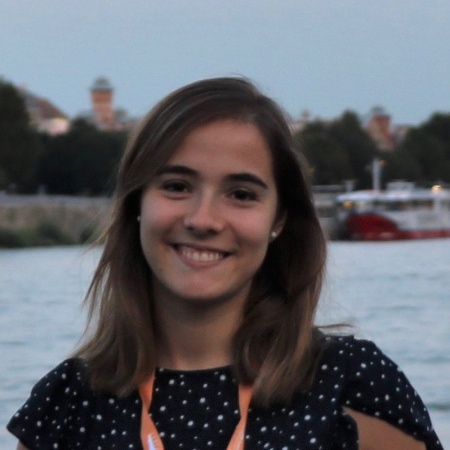
Ligia Conceição
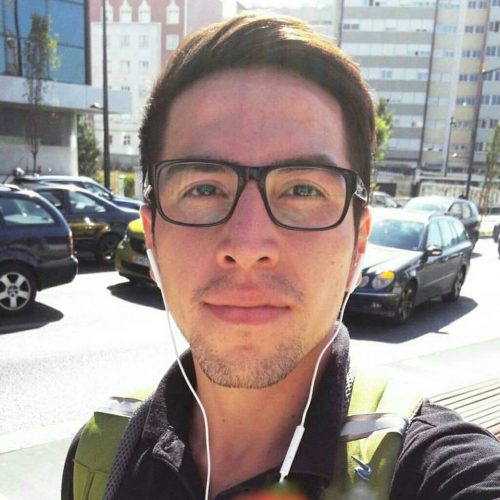
Luis Espinosa
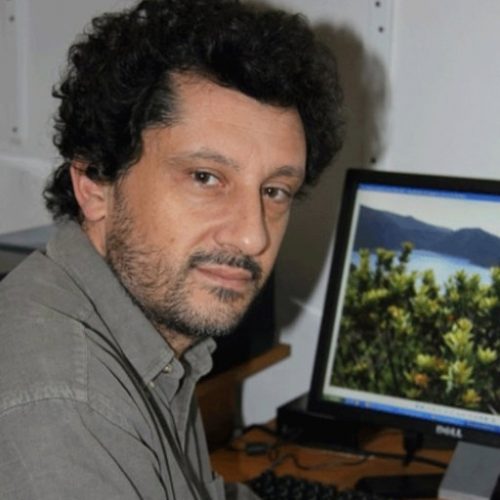
Luís Filipe Dias e Silva
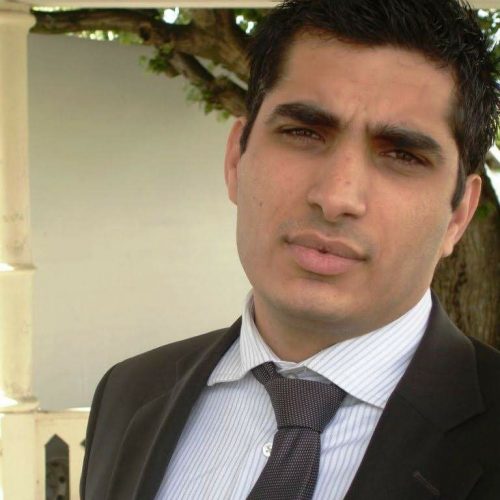
Marcos Martins
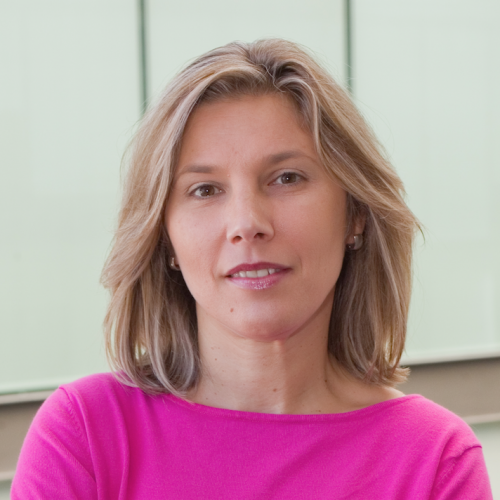
Maribel Yasmina Santos
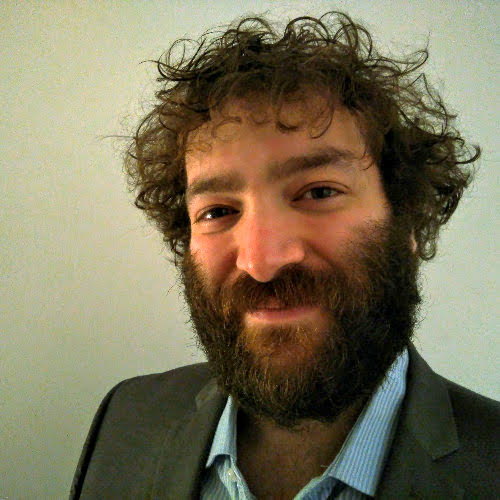
Naim Majdalani
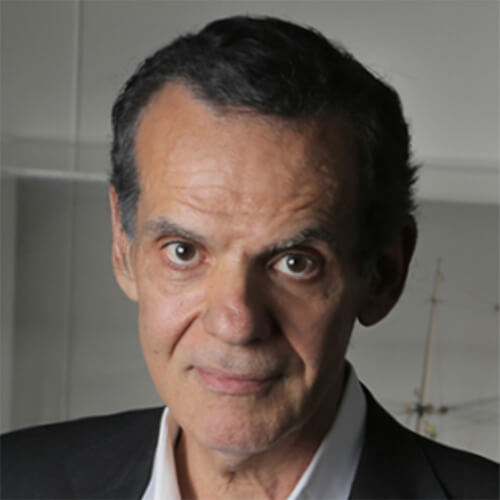
Paul Sclavounos

Paulo Fialho
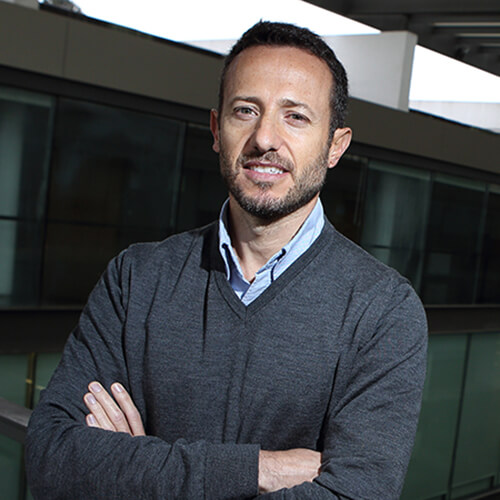
Pedro Arezes
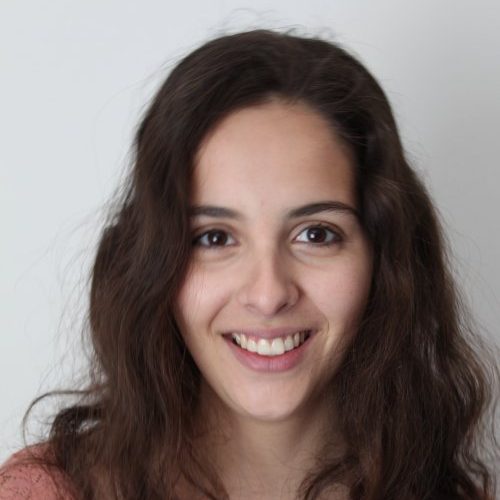
Raquel Figueiredo
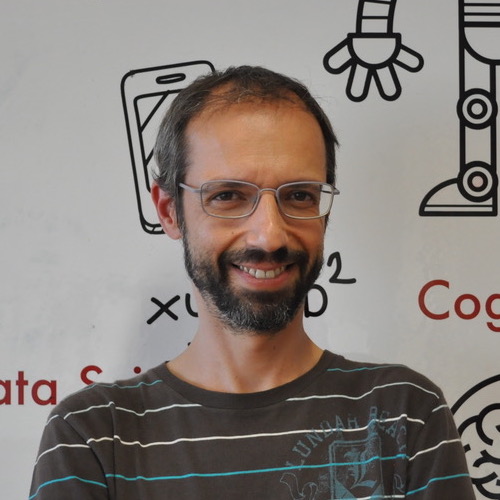
Rodrigo Ventura
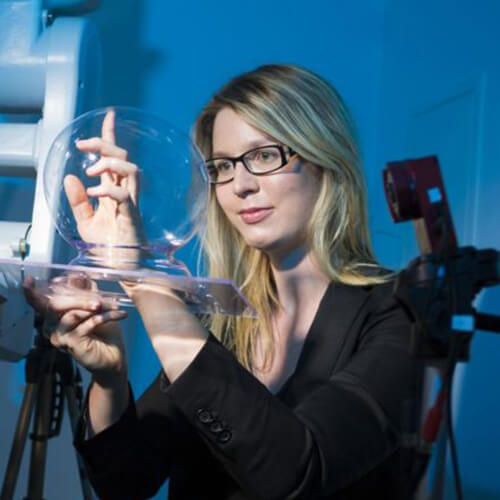
Stefanie Mueller
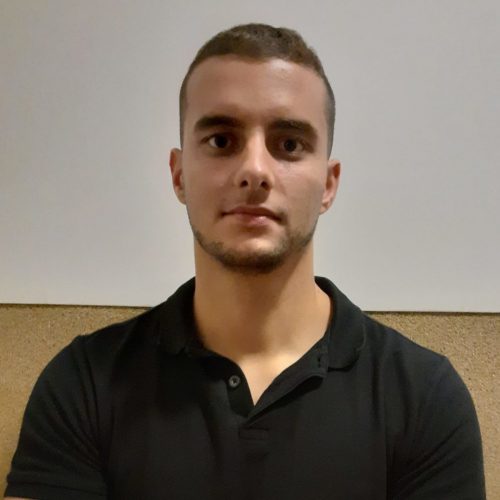
Tiago Matos
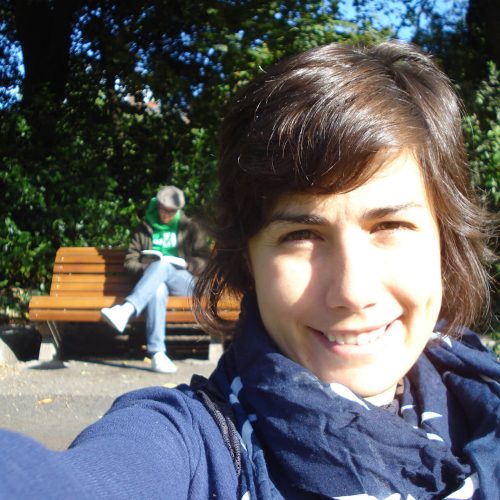
Vanessa Tavares

Zita Martins
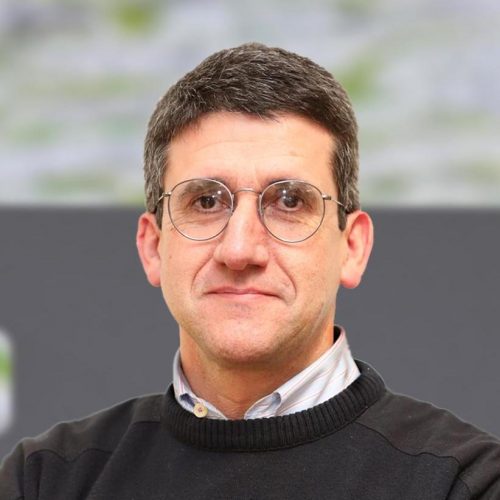
Paulo Cruz
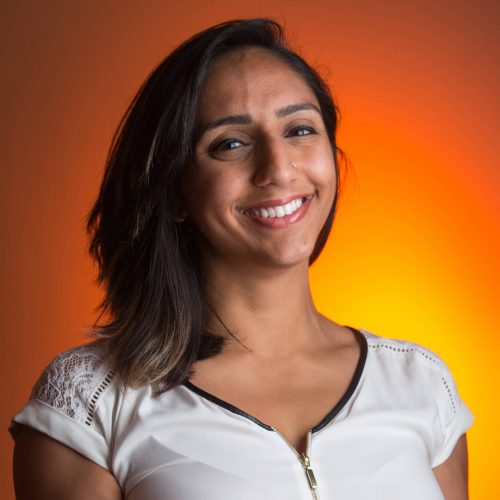
Maha Haji

Lara Dutra Silva

Ana Pereira
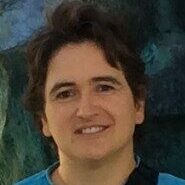
Rita Justo Silva
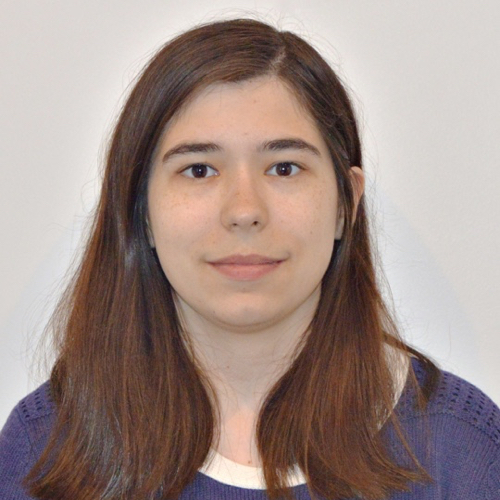
Maria João Sousa
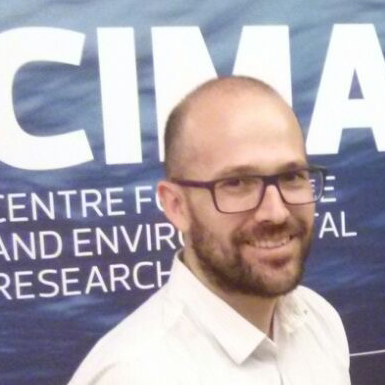
João Miguel Janeiro
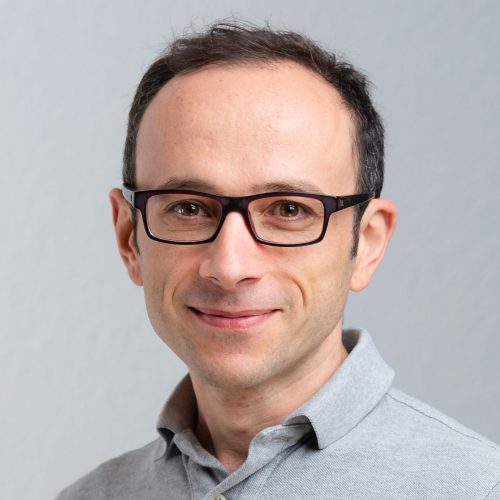
Davide Lasi

Akmaral Suleimenova
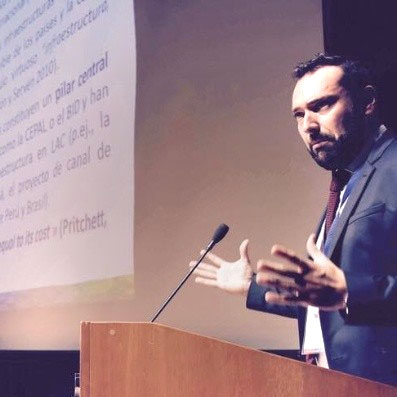
Patrice dos Santos
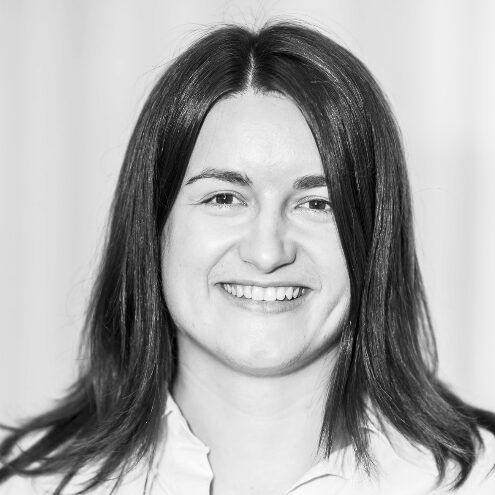
Olga Savchuk

José Pedro Fernandes
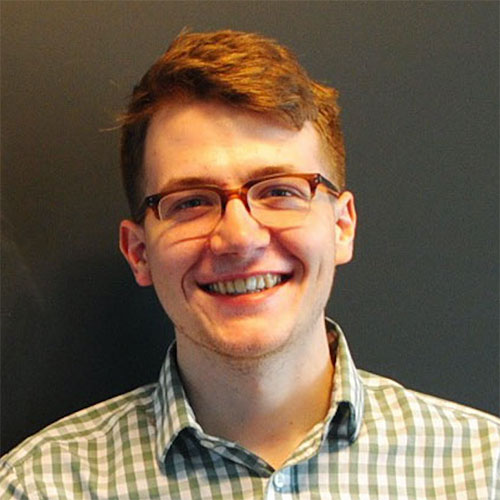
Haden Quinlan

Tomás Hipólito

Laura Khammash
Alexandra Moutinho
Alexandra Moutinho is an Assistant Professor of the Mechanical Engineering Department of Instituto Superior Técnico, Universidade de Lisboa, and a Senior Researcher of the Institute of Mechanical Engineering (IDMEC), part of the Associated Laboratory for Energy, Transports and Aeronautics (LAETA). Her scientific interests are focused on mobile robotics, with special emphasis on unmanned aerial vehicles (UAVs). Her main research concerns the different aspects of UAVs, namely modelling, identification, simulation, instrumentation, estimation, and control. Being actively involved in the development of different aerial platforms like airships and quadcopters, her research combines both theoretical and experimental developments.
Andrea Tassi
My name is Andrea Tassi, I’m 25 and I am an Informatic Engineer specialized in Robotics at the University of Perugia (Italy). I worked for a university project called formula Sae because I’m very fascinated by applying my knowledge to real-life problems. I decided to get involved in a completely new field to progressively increase my skills thanks to a research traineeship in the academic field of remote sensing and monitoring changes at the University of the Azores.
Alvar Saenz-Otero
Dr. Saenz Otero is a Principal Research Scientist at the Space Systems Laboratory at the MIT Department of Aeronautics and Astronautics. His most direct research is as Lead Scientist of the SPHERES program. His tasks include the development of research activities for tests aboard the International Space Station and in ground facilities at the MIT SSL. The SPHERES facilities are used for research on formation flight controls; metrology algorithm development; fault-detection, identification, and recovery; autonomous docking and reconfiguration; electro-magnetic formation flight; and vision based navigation and inspection. The project has contributed to several missions under planning, including the Mars Orbit Sample Return, Stellar Imager, and DARPA F6, Phoenix, and RSGS.
In addition to the research programs, SPHERES runs the only student competition which annually concludes in space: Zero Robotics. This outreach program allows both middle- and high-school students to write programs for the SPHERES satellites aboard the ISS.
Academically, he has been a mentor in seven capstone design classes at MIT. The projects he has mentored (beyond SPHERES) include: a hybrid rover system with wheels and legs, modular spacecraft assembly prototypes, separated optical telescopes, electromagnetic formation flight satellites, and a planetary penetrator.
Ana Patrícia Oliveira
Ana Oliveira is a Portuguese MIT Portugal PhD student from the Sustainable Energy Systems Program at Instituto Superior Técnico, Universidade de Lisboa. She graduated as an architect in 2008, having 5 years of professional experience in several building typologies. In 2012, she enrolled in a Sustainable Urbanism masters degree where she became captivated by Geographic Information Systems, particularly satellite-based remote sensing, and the challenges of urban climate change adaptation. In her PhD, she has been using those technologies to research the relationship between urban morphological typologies and their climatic response under extreme temperature events, using 5 European Mediterranean cities as case-studies. The aim is to build an assessment model of urban climatic performance under climate change scenarios.
Ana Rita Machado
Ana Rita is a 2nd year PhD Student in Sustainable Energy Systems in the MIT Portugal Program at Faculdade de Ciências – Universidade de Lisboa. She is developing her work under the subject “Towards ~100% Renewable Power Systems: The role of Distributed Resources Aggregators”. Her main research interests are associated with the integration of VRE in power systems and in the operation of electricity markets with very high shares of renewable generation.
Ana Rita has an MSc degree in Energy and Environmental Engineering. She is a Research Fellow at LNEG since 2017. Before this, she was an intern at LNEG since 2015, developing research work under the themes “Models of Wind Turbine Clusters in Wind Power Plants” and “Modelling and Optimization of a Virtual Renewable Power Plant”. She has participated in research projects (national and international) related to the integration of VREs (wind and solar) in Power Systems, including: EC FP7 IRP.Wind and OptiRES – Advanced Models for Optimal Grid Operation with High Variable Renewable Energy Penetration.
Anna Morozova
Anna Morozova is a researcher at the Center for Earth and Space Research of the University of Coimbra (CITEUC). In 1996 she was graduated in Physics from the St.-Petersburg State University (Russia) and obtained a PhD degree in the field of “Heliophysics and Physics of the solar system” at the same university in 1999. Her research interests are in the area of space weather and its effect on the Earth environment. Currently she is focused on the analysis of variations of the ionospheric conditions due to changes of the solar and geomagnetic activity and internal atmospheric processes. She is a member of the research team for the SWAIR project (ESA sponsored) aimed at development of a space weather alert system for a Portuguese air navigation operator.
António M. Cunha
António Augusto Magalhães da Cunha graduated in Industrial Engineering at University of Minho in 1984. He completed his PhD in 1991 in Polymer Engineering. He is a full professor of the Department of Polymer Engineering and researcher at the IPC – Institute for Polymers and Composites / I3N (Associated Laboratory). He was responsible for several national and European R&D projects and author or co-author of 2 books, 120 articles in ISI scientific journals, and 4 patents. He was Dean of the School of Engineering (2005-09), Rector of UMinho (2009-17), and President of the Council of Rectors of Portuguese Universities (2014-17). He also served as Chairman of the CEER Foundation – Consortium of the Northern Portugal and Galician Universities (2010-16) and the International Institute Casa de Mateus (2011-16).
He is currently the President of the Digital Transformation Collaborative Laboratory (DTx), member of the MIT Portugal Program Program Governing Committee, Co-chairman of the Bosch-UMinho Project, as well as a board member of INL – Iberian International Nanotechnology Laboratory and Member of the Executive Board of CEIIA – Centre of Engineering and Product Development. He was a co-founder of PIEP – Innovation in Polymer Engineering and its administrator from 2001 to 2009. António M. Cunha is also a member of the Portuguese Academy of Engineering, Gold Insignia of the University of Santiago de Compostela and Honorary Citizen and Medal of Honor of Guimarães. On November 25th, 2017, he received the Scientific Merit Medal from the Ministry of Science, Technology and Higher Education. On October 9th, 2018, he was awarded by the President of the Portuguese Republic, with the Grand Cross of the Order of Public Instruction.
Artur Gil
Artur Gil is a Biophysical Engineer and holds an MSc in Spatial Planning and a Ph.D. in Environmental Science. He is currently a Research Scientist in Remote Sensing of Environment and Spatial Planning at the Ce3C—Centre for Ecology, Evolution, and Environmental Changes & Azorean Biodiversity Group—Faculty of Sciences and Technology, University of the Azores (Portugal). His current research is focused on the development of remote sensing-based indicators in order to support decision-making on Spatial Planning in remote areas as islands, mountains, and rural areas.
Audun Botterud
Audun Botterud is a principal research scientist in the Laboratory for Information and Decision Systems at MIT. The main goal of his research is to improve the understanding of the complex interactions between engineering, economics, and policy in electricity markets, and ultimately enable the transition towards a cost efficient and reliable low-carbon energy system. He is particularly interested in the integration of renewable energy and energy storage into a smarter electricity grid. Towards this end, he uses analytical methods from operations research and decision science combined with fundamental principles of electrical power engineering and energy economics. At a more general level, his research focuses on decision making under uncertainty in complex systems.
Bruno Cardoso
Bruno Cardoso is a researcher at the Association for the Development of Industrial Aerodynamics (ADAI), a research unit from the Associated Laboratory for Energy, Transports and Aeronautics (LAETA). He holds a Masters in Electrical and Computer Engineering from the University of Coimbra (2014). He’s been a member of the Portuguese Engineers Association since 2017, and he is the representative of the College of Electrical Engineering in the Young Engineers Group.
His research is mainly focused on Energy Efficiency, Energy Policy, Energy Audits, Renewables, and Benchmarking. Currently, he is a PhD student in Sustainable Energy Systems, and a member of the MIT Portugal Program at the University of Coimbra. His thesis focuses on the characterization of the energy consumption of several kinds of facilities from the Portuguese water sector, as well as on the development of suitable benchmarking approaches and on the increase of the sector’s energy efficiency and sustainability.
Carla Rodrigues
Carla Rodrigues is post-doctoral researcher at Center for Industrial Ecology (CIE @ ADAI-LAETA). She holds a PhD in Sustainable Energy Systems (MIT-Portugal Program, University of Coimbra, 2017), a Master in Energy for Sustainability with focus in Energy in Buildings and Urban Environment (2013), and a first degree in Architecture (2008). She is currently a Co-PI of a R&D project and collaborates in several other projects (national and European). She was also a visiting researcher at MIT (Materials Systems Laboratory and Concrete Sustainability Hub) for a year (2014-2015). Her research interests include life-cycle environmental and cost assessment of buildings (materials, components, and whole buildings – new and retrofitted), streamlined life-cycle assessment approaches, statistically-based methods, operational energy modelling (thermal dynamic simulation), multi-criteria decision analysis, and environmental certification of buildings. More recently she has been working in ecodesign (integrating environmental impacts and costs) of new products and materials, incorporating residues and recycled materials.
Christoph Reinhart
Christoph Reinhart is a building scientist and architectural educator working in the field of sustainable building design and environmental modeling. At MIT he is leading the Sustainable Design Lab (SDL), an inter-disciplinary group with a grounding in architecture that develops design workflows, planning tools and metrics to evaluate the environmental performance of buildings and neighborhoods. He is also the head of Solemma, a technology company and Harvard University spinoff as well as Strategic Development Advisor for mapdwell, a solar mapping company and MIT spinoff. Products originating from SDL and Solemma are used in practice and education in over 90 countries.
Before joining MIT in 2012, Christoph led the sustainable design concentration area at Harvard’s Graduate School of Design where the student forum voted him the 2009 Teacher of the Year out of 77 instructors in the Department of Architecture. From 1997 to 2008 Christoph had worked as a staff scientist at the National Research Council of Canada and the Fraunhofer Institute for Solar Energy Systems in Germany. He has authored over 130 peer-reviewed scientific articles including two textbooks on daylighting and seven book chapters. His work has been supported by a variety of organizations from the US National Science Foundation and the Governments of Canada, Kuwait and Portugal to Autodesk, Exelon, Kalwall, Philips, United Technology Corporation, and Sage Electrochromics.
Christoph’s work has been recognized with various awards among them a Fraunhofer Bessel Prize by the Alexander von Humboldt Foundation (2018), the IBPSA-USA Distinguished Achievement Award (2016), a Star of Building in Science award by Buildings4Change magazine (2013) and seven best paper awards. Mapdwell has been recognized with FastCompany’s Design by Innovation 2015 award for Data Visualization as well as a Sustainia 100 award. Christoph is a physicist by training and holds a doctorate in architecture from the Technical University of Karlsruhe.
Doug Hart
Professor Douglas P. Hart is a principal investigator in the Hatsopoulos Microfluids Laboratory. He earned his bachelor’s degree in Aeronautical/Astronautical engineering from the University of Illinois, his master’s degree in Mechanical Engineering from the Massachusetts Institute of Technology, and his Ph.D. in Mechanical Engineering from the California Institute of Technology.
He worked as a research engineer for Electromagnetic Launch Research, Inc. (now Kaman Electromagnetics Corp. a subsidiary of Kaman Corp.) on satellite propulsion and as a senior systems engineer for Northrop Corp. (now Northrop Grumman Corp.) on unmanned drones before joining the faculty in the Department of Mechanical Engineering at MIT in 1993.
Professor Hart teaches and conducts research in the areas of fluid mechanics, design, and instrumentation. He’s also an inventor, cofounder, and board member of three venture funded companies that include Brontes Technologies, Inc., an MIT Deshpande Center spinout acquired by 3M in 2006, and Lantos Technologies, an MIT Deshpande Center spinout founded in September of 2011. Professor Hart has a long history of successful inventions from within and outside academia. He is an advisor for numerous companies and professional organizations and he has received a number of awards for his research and teaching that include the Robert T. Knapp Award for his work in the area of flow diagnostics, the Keenan Award for Innovation in Education, and the Junior Bose Award for Excellence in Teaching. His current interests include image processing and optical diagnostics relating to health and the environment.
Ed Boyle
Ed Boyle is a marine geochemist involved in the study of the oceanic dispersal of anthropogenic emissions and the evolution of the Earth’s climate. He is interested in the areas of paleoceanography, paleoclimatology, and the chemistry of environmental waters. His research includes climatological studies of past ocean circulation patterns based on the fossil chemistry of oceanic sediments, control of late Pleistocene carbon dioxide pressure by ocean circulation and chemistry, and trace element variability in polar ice cores. He is also investigating the trace element chemistry of rivers and estuaries, and the chemical composition of seawater. In particular, he studies the variability of oceanic trace metals related to atmospheric transport of anthropogenic emissions and natural mineral dust into the ocean and mineral dust, and the transport and fate of pollutant lead and biologically essential iron in the ocean.
Fábio Daniel Correia
Fábio Daniel Correia is a Masters student at the University of Minho, Portugal. Currently, he is part of the Research Group on Quality and Organizational Excellence coordinated by Professor Paulo Sampaio and also works as a Production Engineer in Super Bock Group. His research interests include Organizational Excellence, Digital Quality, and Quality 4.0. Since 2017 he has been an ASQ Student Branch member and has been developing research in several areas of Quality. Fábio has working experience in the metrology industry and has both academic and professional expertise in this area.
Fabiola Pereira
Fabíola Pereira is a MIT Portugal PhD student in Sustainable Energy Systems at Instituto Superior Técnico (IST-UTL). She graduated in 2013 in Chemical Engineering at IST-UTL with previous experience in the revamp of a hydrocracking unit for renewable fuel production at Galp Energia, research and analysis in South West Europe Cluster at Air Liquide, research and development of the synthesis of emulsions in Geneva, Switzerland and researche at the Regional Energy and Environmental Agency of Madeira Autonomous Region.
Her background is in process engineering for power generation industry as substitute responsible of a LNG Satellite Plant for electricity production, operation and engineering of onshore wind farms situated in Madeira Island and project evaluation and externalities of offshore wind farms contributed to her research in regional energy planning and modeling (IN+) related to offshore wind energy resource assessment from satellite data observations for a low carbon energy system.
In addition, Fabíola participated as a speaker in the hemicycle of the European Parliament in the debate of European integration, has attended courses at DNV-GL (Netherlands) and MIT (IWI), participated as an author in an International Conference in Ireland, and is a committee member of the young chemical engineers group at Ordem dos Engenheiros and volunteer at TEDx Funchal. Water sports have also been a key driver for Fabiola as she was previously the regional stand up paddle female championship winner.
Dava J. Newman
Dava Newman is the Apollo Program Professor of Astronautics at the Massachusetts Institute of Technology (MIT) in Aeronautics and Astronautics, a Harvard–MIT Health, Sciences, and Technology faculty member and Director of the MIT Portugal Program.
Dr. Newman’s research expertise is in multidisciplinary aerospace biomedical engineering investigating human performance across the spectrum of gravity. She is a leader in advanced space suit design, dynamics and control of astronaut motion, leadership development, innovation, and space policy. Newman was the principal investigator on 4 spaceflight missions. The Space Shuttle Dynamic Load Sensors (DLS) experiment measured astronaut-induced disturbances of the microgravity environment on mission STS-62. An advanced system, the Enhanced Dynamic Load Sensors experiment, flew on board the Russian Mir Space Station from 1996–1998. Dr. Newman was a Co-Investigator on the Mental Workload and Performance Experiment (MWPE) that flew to space on STS-42 to measure astronaut mental workload and fine motor control in microgravity. She also developed the MICR0-G space flight experiment to provide a novel smart sensor suite and study human adaptation in extreme environments. She is the MIT PI on the Gravity Loading Countermeasure Suit, or Skinsuit, onboard the International Space Station as an ESA technology demonstration 2015-2017. Best known for her second skin BioSuit™ planetary EVA system, her advanced spacesuits inventions are now being applied to “soft suits/exoskeletons” to study and enhance locomotion on Earth.
Recent research focuses on Earth Systems, namely ocean through near-space subsystems to accelerate solutions for climate and oceans by curating near-space satellite data to make the world work for 100% of humanity. Newman is the author of Interactive Aerospace Engineering and Design, and has published more than 250 papers in journals and refereed conferences, and holds numerous compression technology patents. She has supervised 90 graduate student theses and supervised and mentored over 200 undergraduate researchers.
She served as NASA Deputy Administrator from 2015–2017, and along with the NASA Administrator was responsible for articulating the agency’s vision, providing leadership and policy direction, and representing NASA to the White House, Congress, international space agencies, and industry. Dr. Newman was the first female engineer and scientist to serve in this role and was awarded the NASA Distinguished Service Medal. She championed the human journey to Mars, technology and innovation, and education. Her National Academies service includes membership on the Space Studies Board, two terms on the Aeronautics Space and Engineering Board, the Committee on Human Spaceflight Technical Panel, and a discipline panel on the Decadal Survey on Biological and Physical Sciences in Space. Recent honors include: Lowell Thomas Award, Phi Beta Kappa Visiting Scholar, AIAA Fellow, AIAA Jeffries Aerospace Medicine and Life Sciences Research Award, and Women in Aerospace Leadership Award. She holds a Ph.D. in aerospace biomedical engineering from MIT, M.S. degrees in aerospace engineering and technology and policy from MIT, and a B.S. in aerospace engineering from the University of Notre Dame.
Gareth H. McKinley
Gareth H. McKinley is the School of Engineering Professor of Teaching Innovation within the Department of Mechanical Engineering at MIT. He received his BA and M.Eng. degrees from the University of Cambridge and his Ph.D (1991) from the Chemical Engineering department at MIT. He taught in the Division of Engineering and Applied Sciences at Harvard from 1991-1997 and was an NSF Presidential Faculty Fellow from 1995-1997.
He won the Annual Award of the British Society of Rheology in 1995 and the Frenkiel Award from the APS Division of Fluid Dynamics in 2001. He served as Executive Editor of the Journal of Non-Newtonian Fluid Mechanics from 2001 to 2009 and as Associate Editor of Journal of Fluid Mechanics from 2007-2009.
He most recently served as the Associate Dept. Head for Research of the Mechanical Engineering Department at MIT from 2008-2013. He is also a co-founder of Cambridge Polymer Group. His research interests include extensional rheology of complex fluids, non-Newtonian fluid dynamics, microrheology & microfluidics, field-responsive fluids, super-hydrophobicity, wetting of nanostructured surfaces and the development of nanocomposite materials. He is the author of over 280 technical publications and was one of the winners of the 2007 Publication Award of the Society of Rheology. He is a Fellow of the American Physical Society. He was the recipient of the 2013 Bingham Medal of the Society of Rheology and in 2014 he was awarded the Gold Medal of the British Society of Rheology. He served as President of the Society from 2015-201 and is also the past chair of the US National Committee of Theoretical and Applied Mechanics (USNC/TAM). In 2019 he was elected to the National Academy of Engineering and also inducted as a Fellow of the Royal Society of London.
Guillermo Trotti
Mr. Trotti is an internationally recognized architect and industrial designer with over thirty years of experience designing architectural projects for the hospitality, entertainment, and education sectors. He specializes in projects in extreme environments such as remote islands, the Antarctic, and space. He also has over twenty five years experience teaching design in architecture and industrial design at the University of Houston and at the Rhode Island School of design respectively.
Mr. Trotti is the president of Trotti & Associates, Inc. (TAI) a firm he founded in 1993 in Cambridge Massachusetts. TAI is a design firm helping private and public organizations around the world design new solutions for sustainable developments, buildings, and products in the areas of Architecture, Industrial Design, and Aerospace. Current projects include hotels, condominiums, eco-parks, and residences in remote islands of the Caribbean focusing on appropriate technologies to achieve elegant and smart design solutions applicable to the different types of environments.
Also, TAI has worked with the NASA’s Institute of Advanced Concepts on revolutionary mission architecture concepts to explore the Moon with habitable rovers. The Extreme Expeditionary Architecture: Mobile, Adaptable Systems for Space and Earth Exploration (EXP-Arch) project proposes a revolutionary way for humans and machines to explore the Moon. TAI is also working with MIT on the BioSuit™ project, an advanced mechanical counter pressure space suit for Lunar and Mars surface exploration.
Before Mr. Trotti moved to Massachusetts he was the president of Bell and Trotti, Inc. BTI an design and fabrication studio based in Houston, Texas specialized in Hi-Technology Architecture, Exhibit Design, Industrial Design, and Space Architecture. Since its inception the company had a key role in designing diverse elements of the International Space Station for NASA and leading aerospace companies. In addition, BTI was involved in facilities planning and development of projects applying space-age technology for ecologically responsive solutions. BTI designed museum exhibits, set designs for the movie industry, and major theme attractions.
Hugo Algarvio
Hugo Algarvio has an MSc in Electrical and Computer engineering. He is a research fellow at LNEG and a PhD candidate in Sustainable Energy Systems from the MIT Portugal program. His main research interests and PhD Thesis theme concern the use of multi-agent technology to model and simulate present and future electricity markets and the market agents’ behaviors. The main focus of his thesis is the simulation of the wind power integration and retail competition in electricity markets. He has published more than 30 papers, four of them have been published in SCI indexed journals with high impact factors.
Inês Reis
Inês Reis is currently a third-year student of the PhD Program in Sustainable Energy Systems, in the framework of the MIT-Portugal program, at the University of Coimbra. She holds a Master degree in Sustainable Energy Systems from the University of Aveiro (2016) and a Bachelor degree in Environmental Engineering from Polytechnic Institute of Coimbra (2011). Since December 2017, she is a junior research associate of the Institute of Systems and Computer Engineering of Coimbra (INESCC) where she has been involved as research-fellow in the EnergyBOR project (UI0308-EnergyBOR.2/2017) and in the Learn2Behave project (project CENTRO-01-0145-FEDER-023651). She has also been involved with the ESGRIDS – Enhancing Smart Grids for Sustainability research team (project POCI-01-0145-FEDER-016434) in the tasks involving end-users’ awareness and engagement and since September 2018 she was involved as a research-fellow in the MAnAger project (UI0308-MAnAGER.1/2018). Her thesis focus on the combination of optimization and agent-based modeling tools to unveil the potential role of energy communities in power systems.
Jim Anderson
James G. Anderson was born in Spokane, Washington. He earned his B.S. in Physics from the University of Washington and his PhD in Physics and Astrogeophysics from the University of Colorado. He joined the faculty of Harvard University in 1978 as the Robert P. Burden Professor of Atmospheric Chemistry; in 1982 he was appointed the Philip S. Weld Professor of Atmospheric Chemistry. Anderson served as Chairman of the Department of Chemistry and Chemical Biology from July 1998 through June 2001.
He was elected to the National Academy of Sciences, the American Philosophical Society and the American Academy of Arts and Sciences, and a frequent contributor to National Research Council Reports. He is a Fellow of the American Geophysical Union and the American Association for the Advancement of Sciences Arthur L. Day Prize and Lectureship; the E.O. Lawrence Award in Environmental Science and Technology; the American Chemical Society’s Gustavus John Esselen Award for Chemistry in the Public Interest; and the University of Washington’s Arts and Sciences Distinguished Alumnus Achievement Award. In addition, he received the United Nations Vienna Convention Award for Protection of the Ozone Layer in 2005; The United Nations Earth Day International Award; Harvard University’s Ledlie Prize for Most Valuable Contribution to Science by a Member of the Faculty; and the American Chemical Society’s National Award for Creative Advances in Environmental Science and Technology.
The Anderson research group addresses three domains in the physical sciences: (1) chemical reactivity viewed from the microscopic perspective of electron structure, molecular orbitals and reactivities of radical-radical and radical-molecule systems; (2) chemical catalysis sustained by free radical chain reactions that dictate the macroscopic rate of chemical transformation in Earth’s stratosphere and troposphere; and (3) mechanistic links between chemistry, radiation, and dynamics in the atmosphere that control climate.
Jessika Trancik
Jessika Trancik is an Associate Professor of Energy Studies at the Massachusetts Institute of Technology. She is also an external professor at the Santa Fe Institute. She received her BS in materials science and engineering from Cornell University and her PhD in materials science from the University of Oxford as a Rhodes Scholar. Before MIT, she spent several years at the Santa Fe Institute as an Omidyar Fellow, and at Columbia University as an Earth Institute Fellow, where her research focused on energy systems modeling. Her research group studies the dynamic costs and environmental impacts of energy technologies to inform technology design and policy.
Prof. Trancik’s research centers on evaluating the environmental impacts and costs of energy technologies, and setting design targets to help accelerate the development of these technologies in the laboratory. This work involves assembling and analyzing expansive datasets, and developing new quantitative models and theory. Projects focus on electricity and transportation, with an emphasis on solar energy conversion and storage technologies.
Joana Mendonça
Joana Mendonça is an assistant professor at the Engineering and Management Department at IST-University of Lisbon since January 2017, where she teaches Entrepreneurship Theory, Engineering Economics and Project Appraisal, to Undergraduates, Masters, and PhDs students. She does research at IN+, Center for Innovation, Technology and Policy Research, where she leads the Laboratory of Technology Management and Policy. Her research focuses on processes of new technology commercialization, industrial development and in the role of skills and human capital in these processes. She has published in peer-reviewed journals, such as Research Policy, Small Business Economics and Technological Forecasting and Social Change. She has been promoting cooperation with companies, having established joined work with companies in different sectors and locations in Portugal. Parallel to her research, she has followed and helped technology commercialization projects from students and other researchers. She is a Scientific Director of the Carnegie Mellon Portugal Partnership, and scientific coordinator at CEiiA.
During 2016, she was an assistant to the Minister for Economy for issues related to Innovation, Technology and Science. She was a guest lecturer at IST in 2013/14 and 2014/15, during which she lectured Technology Based Entrepreneurship, Practice and Analysis of Public Policy and Advanced Topics in Public Policy Analysis. She won the Best Paper Award at IECER in 2015 with the paper Business Owners’ Educational Skills and Entrepreneurial Teams on Workers Wages: The Role of Business Owners Gender, co-authored with Filipa Madeira and Miguel Torres. In 2012, she integrated the International Risk Governance Council (IRGC) network and contributed with research on technology adoption and industrial development. Between 2010 and 2012, she was a Deputy Director at the Directorate for Education and Science Statistics (DGEEC). In 2009-2010, she was an assistant to the Secretary of State for Science, Technology, and Higher Education. She obtained her PhD in Engineering and Industrial Management at IST, University of Lisbon, in 2009. In 2008, she was an invited research at ZEW (Centre for European Economic Research), maintaining this collaboration since. Before her PhD she did a Masters in Engineering Policy and Management of Technology, and obtained her Diploma in Chemistry from Lisbon University. She was a researcher at Instituto Tecnológico e Nuclear, focusing on Solid State Chemistry, and made her diploma thesis at Bern University on Vitamin B12 Derivatives.
João Carvalho
Architect by the School of Architecture of the University of Minho. Defends in March 2018 the master thesis titled “3D Ceramics, Digital Systems for the Customization of the Design and Production of Architectural Components” obtaining the classification of excellent. Currently he is a PhD student at the School of Architecture of the University of Minho, with a PhD grant provided by FCT. Member of the research team of Advanced Ceramics R&D Lab since 2017 and research fellow of the MIT Portugal Program with Project “KERAMOS” between October 2018 and August 2019. Autor of several publications at international conferences and with exposed content at national and international exhibitions in the field of digital design tools and additive manufacturing technologies. In 2017 integrates the organization of the fourth national meeting of architecture students directing the communication department. In 2016 with Rita Sampaio and Vânia Silva founds Diagonal, the architecture magazine of the students of EAUM, accumulating the functions of director and editor. In 2012 completes the cycle of studies in Communication and Multimedia Design at Colégio de São Gonçalo, obtaining the qualification of technician in Communication Design (level 4 of the QNQ) with the final grade of 18 values.
Poster:Digital Ceramics Coral Reefs
João Pedro Silva
João Pedro Silva graduated from the University of Minho in Mechanical Engineering with specialization in Energy and the Environment. Currently, he is a PhD Student at the Leaders for Technical Industries Doctoral Program from the MIT Portugal Program, Invited Assistant Professor in the Mechanical Engineering Department of the University of Minho, and member of the Mechanical Engineering and Resource Sustainability Center (MEtRICs). He is author of several publications at international conferences and has been involved in projects with large companies such as Continental Mabor, EDP, Bosch, and Bioelétrica da Foz (Altri). His research topic is related to the development of a CFD Model of an Industrial Biomass Boiler.
João Pereira
João Pereira is a senior researcher at the Laboratório de Sistemas e Tecnologias Subaquáticas – LSTS (Underwater Systems and Technologies Laboratory). At the LSTS he is responsible for operations and vehicle development. He holds an MSc in Electrical Engineering awarded by the University of Porto. His research interests include autonomous underwater, surface and air vehicles and applications of networked vehicle systems to the ocean sciences, security, and defense.
João led operational deployments in the Rapid Environmental Picture Exercise jointly organized by LSTS, the Portuguese Navy, and the Centre for Maritime Research and Experimentation from NATO. He was also in charge of operations for the Schmidt Ocean Institute Exploring Fronts with Multiple Robots cruise which took place May-June 2018 approximately 1,000 nautical miles west of Southern California.
Jorge Marques Silva
Jorge is a PhD student in Sustainable Energy Systems from the MIT Portugal Program. Since 2018, he has been working at the Center of Intelligent Systems (CIS), IDMEC, Instituto Superior Técnico (IST), Universidade de Lisboa (UL), Portugal. His research is focused on Predictive Control of Renewable Energies, namely Wave Energy, using Soft Computing techniques. Currently, he is attending MIT for a research stay at the Laboratory for Ship and Platform Flows (LSPF), Department of Mechanical Engineering, within the MIT Portugal Seed Funding project.
During 2016 and 2017 he has worked as software developer at Novabase, a market leader company in Information Technology (IT) consulting.
In 2015 he has concluded the studies (BSc + MSc) in Electrical and Computer Engineering in Faculdade de Ciências e Tecnologia, Universidade Nova de Lisboa (FCT-NOVA). Throughout his academic journey, he has experienced two Erasmus Mobility programs. The first one took place in 2013 at the Delft University of Technology (TU Delft) in the Netherlands, where he has completed academic courses. The second occurred between 2014 and 2015 in Institut de Ciència de Materials de Barcelona (ICMAB) in Spain, where he has conducted the master thesis in the Energy area. His master’s research focused on the recent approach of innovative high-temperature superconducting stacked tapes in electrical machines applications. Ultimately, the project resulted in the development and testing of a frequency controlled superconducting motor with rotor built with superconducting tapes.
Furthermore, in 2014 and 2015 he has taught younger students as a teaching assistant in the course of Electrical Circuits Theory in FCT-NOVA.
José Gaspar
José Gaspar is a Post-Doc researcher at Centre for Marine Technology and Ocean Engineering (CENTEC) and is the responsible researcher of two FCT funded research projects dedicated to the design and development of wave energy converters and power take offs. He has been also the group leader of three experimental research projects award by Marinet 1 and 2 EU programs. These projects have been performed with multidisciplinary and international teams and in recognized research facilities. The ongoing research is also taking one more stage, the utilization of the acquired knowledge to integrate these devices with the offshore renewable wind platforms. The results have been regularly published in international conferences and journals.
Previous research activities have been dedicated to the better understanding of the relations between human-machine interfaces in the context of in-car (PhD at MIT Portugal) and ship equipment interfaces (CENTEC) and the development of smart solutions for more efficient air condition systems (MSc at IST). The research has been published in a thesis and several journal papers.
José Gaspar has lectured at Instituto Superior de Engenharia de Lisboa (ISEL), Instituto Superior de Tecnologia de Tomar (IPT) and Instituto Superior Técnico (IST) and was member of the Institute of Mechanical Engineering (IDMEC) and Institute of Science and Engineering Materials and Surfaces (ICEMS) research centers.
He has taken several positions in different institutions, such as laboratory assistant, research assistant, assistant professor, teaching assistant and invited scientist. The research and lecturing activities have been dedicated to areas related to fluid mechanics, air conditioning and refrigeration, product design and development, creativity and innovation, human-machine interfaces and lastly to the design and development of offshore renewable devices.
Holds Bachelor and Graduation (Licenciatura) diplomas in mechanical engineering (ISEL), a master diploma in engineering design (IST) and PhD on leaders for technical industries, engineering design and advanced manufacturing (MIT Portugal).
Before enrolling in the academic world, José Gaspar has served in the Portuguese Air Force for eight years ending in the Lieutenant position. He was awarded the aeronautical material maintenance technician qualification and has worked in several air bases, including Lages (Terceira Island). His activities were related to the management of a vast range of aircraft systems.
José Gaspar likes to work in creative and innovative solutions, which always involve complex engineering systems across different fields of activity and technologies. Also likes to design projects and manage collaborative teams. His ambition is to perform something relevant for society and for himself.
José Simões
Jose Simões is an MIT Portugal Ph.D. student studying in the Leaders for Technical Industries (LTI) program. He received his masters degree in Mechanical Engineering from the University of Minho in 2016. While obtaining his masters degree, he decided to specialize in mechatronic systems due to his passion for electronics, robotics, and automation.
He worked on his masters dissertation in cooperation with WestSea Viana Shipyard. There he developed a program and simulator module to test the ship’s electrical communication signals and was able to detect errors in the installation. At the time, the project was heavily weighted since it was projected to save the shipyard thousands of euros in repair costs for each ship build. From this and other projects, he has published various papers in international conferences.
He currently works as a research and development mechanical engineer at a high-end optics company. He has been employed there for almost three years where he has studied and developed various mechanisms and product solutions. He has also been involved in numerous projects that are currently available in the market and many more that are on their way. There, he is working on his thesis topic “Optimization of a riflescope with an integrated rangefinder.” His current interests include image processing, automation, finite element analysis, optimization, and neural networks.
Kimberly Jung
Kimberly Jung is a graduate student in mechanical engineering at MIT working on redesign of underwater fiber optic cable repeaters with Professor Doug Hart. She earned her MBA from Harvard Business School and is a 2008 graduate of the US Military Academy at West Point. Kim served five years active duty in the Army as a combat engineer with a deployment to Afghanistan. She then cofounded and led Rumi Spice, an international spice company, as CEO. Rumi Spice employs the largest number of Afghan women in the private sector and delivers premium Afghan saffron to Michelin star restaurants and grocery stores around the world.
Ligia Conceição
Lígia Conceição is a PhD candidate in Transportation Systems from the MIT Portugal Program. During her PhD, she was a visiting student at TU Delft and MIT. Her background is in civil engineering focused on traffic engineering and infrastructures, which earned a master’s degree at the University of Porto. Enthusiast and passionate about making the world a better place once automated vehicles become a reality, her research focuses on transport planning AV zones inside cities and AV traffic control strategies.
Luis Espinosa
Luis Espinosa is a Civil Engineer with specialization in Hydraulics (UNAM). He has MSc degree in Water and Environmental Management (UoB) and an Erasmus Mundus MSc in Ecohydrology (CAU Kiel). Luis Espinosa is currently a PhD student under H2DOC, a doctoral program between IST and LNEC (National Civil Engineering Laboratory). His research focuses on changes in hydrological extremes, particularly in North Atlantic small islands. He has experience in a large number of data mining techniques and tools for extracting trends, characteristics or rules from data which are relevant for hydrology.
Luís Filipe Dias e Silva
Luís Silva obtained his degree in Biology (1989) at Faculty of Sciences, Lisbon University.
He started his academic career at the University of the Azores in 1991, and obtained his PhD in Plant Ecology in 2001.
His main interests are in plant ecology and biodiversity: rare plants, plant invaders, molecular ecology, species distribution modeling. He has been involved in the elaboration of plant lists for the Azores, namely a general checklist, a list of top invasive species, and a list of threatened taxa, and has coordinated the vascular plant list in the Azorean Biodiversity Portal. He has been developing applications of Bayesian statistics to ecology, namely in the study of plant and palaeocommunities. In the area of modeling, he is presently working with the distribution and biomass production of woody plant invaders. He teaches mainly in the areas of applied statistics and ecology from bachelor to doctorate levels, and presently coordinates the Master Program in Environment, Health and Safety.
Marcos Martins
Marcos Martins completed a Ph.D. in Electronic and Computer Engineering from the University of Minho (UM) in 2013 financed with an individual FCT grant working in Ultrasonic Wireless Broadband Communication System for Underwater Applications. Between 2011 and 2016 he was an invited Assistant Professor at Instituto Politécnico do Cávado e do Ave (IPCA). In September 2014 he started to teach as invited Professor at UM, dedicating himself exclusively to teaching for a year and a half at the IPCA and UM, simultaneously. In March 2016 he wins an individual postdoc FCT grant in cooperation with the Laboratory of Robotics and Engineering Systems (LarSys) at Instituto Superior Técnico de Lisboa (IST) and Center for Microelectromechanical Systems (CMEMS) at UM to develop an underwater wireless acoustic modem with streaming video capabilities. In 2016 he also integrated into the NEXTSEA, an IB-S project to develop the next generation coastal monitoring systems in a global change scenario. He has collaborated in 10 national funded projects and was PI of 3 IAPMEI and COMPETE projects. Recently, he has received funding once more in two MIT-FCT Exploratory Projects, one of them as PI.
Maribel Yasmina Santos
Maribel Yasmina Santos is an Associate Professor (with Habilitation) at the Department of Information Systems, School of Engineering, University of Minho. She is the leader of the Software-based Information Systems Engineering and Management Group of the ALGORITMI Research Centre, also coordinating the research track “Organizational and Analytical Data-intensive Systems.” Her research interests include Business Intelligence and Analytics, Big Data Analytics, (Big) Data Warehousing, and Online Analytical Processing. She was the Secretary-General of AGILE (the Association of Geographic Information Laboratories for Europe) from May 2013 – June 2015.
Naim Majdalani
Naim Majdalani is a PhD researcher in the field of Sustainable Energy Systems at IN+, Center for Innovation, Technology and Policy Research at Instituto Superior Técnico. He holds a Master in Physics from the University of Connecticut (the USA), and a European Master in Renewable Energy from the Hanze University of Applied Sciences (the Netherlands). Naim’s Bachelor degree is in Physics from Williams College (Massachusetts, the USA).
Previous work includes research at Hanze University of Applied Sciences in the project “MACREDES – Modelling a resilient decentralized energy system.” Naim developed a multi-energy carrier model of the northern region of the Netherlands to evaluate the cost of different renewable energy integration pathways. For his masters thesis Naim developed a finite element model of a thermo-chemical energy storage module to quantify heat losses during operation of different module configurations.
He is currently involved in the project “FIRST – mapping flexibility of urban energy systems project.” Naim is modeling and optimizing archetypical domiciles to quantify their flexibility of time-shifting of cooling and heating demand.
Naim’s main areas of professional interest include the development of new district-scale cooling and heating technologies and installations, and methodologies to develop decision support tools for urban planning and energy reduction in cities.
Paul Sclavounos
Paul Sclavounos is Professor of Mechanical Engineering and Naval Architecture at the Massachusetts Institute of Technology where he has been a member of the faculty since 1981. He teaches undergraduate and graduate subjects on marine hydrodynamics, advanced fluid mechanics, numerical analysis, hydrofoils, propellers and wind turbines, naval architecture and ocean energy. He is the Director of the Laboratory for Ship and Platform Flows and his research focuses upon the marine hydrodynamics and design of ships, offshore oil & gas platforms, floating wind turbines, wave energy converters and wind assisted ship propulsion. Recent interests include the development of machine learning algorithms for the modeling of complex flows in marine hydrodynamics, the development of advanced control algorithms for offshore wind turbines and wave energy converters and the forecasting of wind speeds and seastate elevations for the offshore renewable and maritime sectors. He is the author of over 150 scientific articles and the editor of a book titled: “Readings in Marine Hydrodynamics.”
He is a developer of commercial software which are widely used by the maritime and offshore industry for the hydrodynamic analysis and design of marine structures. From 1987-1995 he was the Principal Scientist for two America’s Cup Syndicates responsible for the hydrodynamic design of their yachts. From 2000-2005 he introduced the Tension Leg Platform and Tension Leg Buoy floating wind turbine concepts which are currently being developed by several organizations worldwide for the harvesting of offshore wind energy. He was a member of the US Navy DDG 1000 Theory Advisory Panel (2006-2015) responsible for the hydrodynamic design of an advanced destroyer vessel and has been a consultant of the US Government, offshore, shipping, yachting and wind energy industries. He was a Georg Weinblum Lecturer (2010-2011), the Keynote Speaker on Floating Wind Turbines of the 2013 Offshore Mechanics and Arctic Engineering Conference and the Keynote Speaker of the 2018 First International Offshore Wind Technical Conference.
Paulo Fialho
Dr. Fialho has a degree in Chemistry from the Faculty of Sciences of the University of Lisbon (1987), and a PhD in Chemistry with a specialty of Chemistry-Physics from the Faculty of Sciences of the University of Lisbon (1993). In 1993 he joined the University of the Azores (UAc) as Assistant Professor in the Department of Agricultural Sciences, becoming Associate Professor in 2005, Associate Professor with Aggregation in 2007 and Professor in 2010. He has also been Pro-Rector of the University of Azores since 2016.
Dr. Fialho is a founding collaborator of the Pico Mountain Observatory (PMO) and is the primary point of contact for activities. He is responsible for the PMO Black Carbon measurements using an aethalometer (Model AE31) and has participated in research carried out at the PMO with other researchers, nationals and internationals. He has been measuring black carbon at the site since 2001.
Pedro Arezes
Since 2016, Pedro Arezes has been a National Director of the MIT Portugal Program.
Since 2013, Pedro has been a Full Professor (Professor Catedrático) on Human Factors Engineering at the School of Engineering of the University of Minho, and a visiting fellow at MIT and Harvard University, both in the USA. Since 2013, he is also an invited full Professor at the University of Porto (Engineering Faculty). In 2010/2011, he worked as an invited researcher at TU Delft (Safety Science group), in the Netherlands.
Having a background on Industrial Engineering, he holds a PhD in the same domain from the UMinho, where he also coordinates, since 2003, the Ergonomics & Human Factors research group,being also the Director of the Ergonomics Laboratory and Program Director of the PhD Program on Industrial and Systems Engineering.
He has published more than 100 papers in peer-reviewed scientific journals, authored and edited more than 50 Books and book chapters, and authored more than 300 peer-reviewed papers published in international conference proceedings.
During his academic career he has been a member and/or PI of more than 30 international and national competitive funded research projects across several domains, with a special emphasis to the domains of Ergonomics and Human Factors, and of Occupational Safety and Hygiene.
He has been collaborating (as a member of the editorial board, guest editor and/or reviewer) with more than 20 recognized international scientific journals.
Raquel Figueiredo
Raquel Figueiredo finished her Msc degree in Energy and Environmental Engineering in 2015, at Faculdade de Ciências – Universidade de Lisboa.
Currently, she is a researcher at Instituto Dom Luiz (IDL) and she is doing her PhD in Sustainable Energy Systems at Faculdade de Ciências, Universidade de Lisboa. Her thesis focus on the impact of climate variability in the Portuguese power system in 2050.
Rodrigo Ventura
Rodrigo Ventura (PhD) is a tenured Assistant Professor of the Electrical and Computer Engineering Department of Instituto Superior Técnico (IST), University of Lisbon, and a senior researcher of the Institute for Systems and Robotics – Lisbon (ISR-Lisbon), part of the Laboratory of Robotics and Engineering Systems (LARSyS). Broadly, his research is focused on the intersection between Robotics and Artificial Intelligence, with particular interest in human-robot interaction, mobile manipulation, biologically inspired cognitive architectures, and decision making under uncertainty. This research is driven by applications in space robotics, urban search and rescue robotics, aerial robots, and social service robots.
Stefanie Mueller
Stefanie Mueller is an assistant professor in the MIT EECS department and a member of the Computer Science and Artificial Intelligence Laboratory. In her research, she develops novel hardware and software systems that advance personal fabrication technologies. Stefanie publishes her work at the most selective HCI venues CHI and UIST and has received a best paper award and two best paper nominees in the past. She is also serving on the CHI and UIST program committees as an associate chair. In addition, Stefanie has been an invited speaker at universities and research labs, such as Harvard, Stanford, UC Berkeley, CMU, Microsoft Research, Disney Research, and Adobe Research.
Tiago Matos
Tiago Matos graduated in Industrial Electronic Engineering and received his MSc degree in 2017 with the specialization of MicroElectro Mechanical Systems and Robotics and Automated Control, from the University of Minho, Portugal. He is a PhD student in Industrial Electronic Engineering at the University of Minho with the thesis theme of “Sediment transport and accumulation sensors for continuous monitoring in marine environments.” Since 2016 he’s worked as researcher in Center for Microelectromechanical Systems (CMEMS), at University of Minho, developing oceanographic instruments.
Poster:Next Sea - Next Generation Coastal Monitoring Systems in a Scenario of Global Change: Low-Cost, Low-Power and Low-Size Maritime Sensors for Massive Deployments and Continuous Monitoring
Vanessa Tavares
Vanessa Tavares is a researcher in ADAI-LAETA in the Center for Industrial Ecology (CIE) since 2011 and a PhD student in Sustainable Energy Systems at University of Coimbra since 2016. She has been working on the Life-cycle assessment of buildings focusing on the Prefabrication. Her PhD thesis theme is “Comprehensive Life-cycle assessment of prefabricated houses.”
From June to September 2018, she was a visiting student at the Massachusetts Institute of Technology (MIT) in the Materials Systems Laboratory (MSL-MIT) and during that period developed a combined model to predict the economic and environmental impacts of the use of prefabrication in comparison with conventional construction in the construction sector (focusing on end-of-life waste treatment strategies, regional variability, and data uncertainty).
She has a degree in architecture in Faculty of Architecture of the University of Porto (2006) and a masters degree in Energy for Sustainability in Faculty of Science and Technology of University of Coimbra (2015). She worked as an architect for 10 years (2005 to 2015) and was a guest lecturer in Construction II course (2010/2011) and a Project BIM instructor in the Faculty of Architecture of the University of Porto.
Zita Martins
Zita Martins is an Astrobiologist, an Associate Professor at Instituto Superior Técnico (IST, Portugal), and a Co-Director of the MIT Portugal Program. She works in the field of Astrobiology and Cosmochemistry, and her research interests include the detection of bio-signatures in space missions, and the potential contribution of organic compounds present in meteorites and comets to the origin of life on Earth.
She has a 5-year undergraduate degree (Licenciatura) in Chemistry from IST (Portugal, 2002) and a PhD in Astrobiology from Leiden University (The Netherlands, 2007). She was an Invited Scientist at NASA Goddard (2005 and 2006), and an Invited Professor at the University of Nice-Sophia Antipolis (France) (2012). In 2009 she was awarded a Royal Society Research Fellowship worth 1 Million British Pounds, and she was a Royal Society University Research Fellow at Imperial College London (UK) until end of 2017. Since January 2018 she is an Associate Professor at IST (Portugal).
Zita Martins has been actively involved in space research, including participation in several space missions. From 2007 to 2009 she worked on the Urey Mars Organic and Oxidant detector, which was previously listed to fly to Mars on the ExoMars mission. She is a Co-Investigator of two European Space Agency (ESA) space missions (OREOcube and EXOcube), which will be installed in the International Space Station. She is also a Member of the Portuguese Consortium of the ARIEL space mission from ESA, and a Member of the “Organic macromolecules” sub-team of the Japanese space mission Hayabusa2 from JAXA.
Paulo Cruz
Paulo J. S. Cruz is Full Professor of Construction and Technology at the School of Architecture of the University of Minho, Guimarães Portugal. Pro-Rector of the University of Minho since 2017. President of the International Association of Structures and Architecture. President of the Design Institute of Guimarães. Director of Landscapes, Heritage and Territory Laboratory R&D unit (2015-2017). President of the School of Architecture of the University of Minho (2004-2011). Head of the Civil Engineering Department of the University of Minho (2003-2004). PhD in Civil Engineering by the Technical University of Catalonia, Barcelona, Spain (1995). MSc in Structural Engineering by the University of Porto, Portugal (1991). Graduated in Civil Engineering by the University of Porto, Portugal (1987).
Prof. Cruz bridges the gap between architecture and structural engineering, exploring innovative technological, constructional and structural solutions and establishing effective collaborations with the construction industry. Aims to explore the integration of digital additive manufacturing techniques in the architectural design and production processes of ceramic elements for building envelopes.
Maha Haji
Maha Haji is a joint researcher in the Engineering Systems Laboratory at MIT and the Sibley School of Mechanical and Aerospace Engineering at Cornell. She is working on developing floating offshore platforms to recharge and offload data from autonomous underwater vehicles at sea. Maha completed her Ph.D. in Mechanical and Oceanographic Engineering as part of a joint program between MIT and the Woods Hole Oceanographic Institution where she designed and tested systems to harvest minerals from seawater. After receiving her PhD, Maha worked as a project engineer at ATA Engineering, an engineering services firm that provides test- and analysis-driven design for aerospace, defense, robotics, and industrial equipment. She will be joining the faculty at Cornell as an Assistant Professor starting in July 2021, where her research will focus on designing offshore systems to sustainably extract resources from the ocean such as power, water, and food, as well as mineral resources key to the progress of clean energy.
Lara Dutra Silva
Lara Dutra Silva was born in Povoação, São Miguel Island, Azores and studied Clinical Analyses and Public Health; and Biology. Holds a master degree in Environmental, Health and Safety. In November of 2018, she completed her PhD (Biology) on forest species distribution models at Universidade dos Açores. With a diverse biological interest ranging from modelling the impacts of invasive forest species across landscapes, statistic, biodiversity, ecology, to phytosanitary, phytochemistry and public health.
Poster:Limitations of Species Distribution Models Based on Available Climate Change Data: A Case Study in the Azorean Forest
Ana Pereira
Ana Pereira is a PhD student from Doctoral Program in Industrial and Systems Engineering at University of Minho, holding a Master degree in Industrial Engineering (2013) from the same university. Currently, she works as an Invited Assistant Professor at University of Minho, in the Department of Production and Systems, being a member of ALGORITMI Research Centre. Author of several publications at international conferences, she has been involved in several projects with multinational companies. Her research topic is mainly focused on Industry 4.0, as well as, the impact of Augmented Reality technology in Human-Machine Interface and workplaces.
Poster:The Use of Augmented Reality in the Lean Workplaces at Smart Factories
Rita Justo Silva
I finished my Master’s in Civil Engineering in 2012, in the Faculty of Science and Technology of Universidade Nova de Lisboa. My dissertation entitled “Contribution to the development of models for the prediction of cracking in road pavements”, in which I got a rating of 17/20 allowed me, for one year, to acquire skills and enthusiasm for research. Moreover, allowed me to work in collaboration with the main Portuguese Road Agency in terms of using their data and understanding their needs.
After working on a research scholarship as part of the EMSURE project at the University of
Coimbra my interest in research has increased even more and made me want to progress further.
In 2014, I was granted a Ph.D. Scholarship under the MIT Portugal Program for the Doctoral
Program in Transportation Systems, which represented a changing point in my life.
The main objective of my research is the development of a Decision-Aid-Tool System for Pavement Management. The system is composed of Pavement Performance Prediction Models, Accident Prediction Models, and a Risk Analysis Tool. The objective of the system is to provide different scenarios and different management strategies to Road Agencies Stakeholders, which allow them to optimize the management of the resources, link the planning and programming activities but also, and above all, contribute to the reduction of road fatalities.
I am also a team member of the Research Group 4 – Transport Engineering and Management of
CITTA Research Centre. CITTA is a joint initiative of FEUP (UPorto) and FCTUC (Coimbra) with a total research staff over 100 members. It is focused on applied research, policy-oriented and design under a distinctive Post-Carbon City perspective. CITTA covers the subjects required by a thorough understanding of how cities, urban systems and their transport infrastructure and services work, and based on this understanding, develops innovative approaches to the existing problems.
I am addicted to personal development, reading, and sports lover.
Currently finishing my PhD, entitled “SAFEROAD – A Decision-Aid Tool for Pavement
Management”, I am looking for the right opportunity to apply my skills and continuing my personal and professional growth.
Poster:A Decision-Aid Tool for Pavement Management
Maria João Sousa
João Miguel Janeiro
Bsc. in Oceanography in 2004 and MSc. Water and Coastal Management in 2006. He worked as a modeller in the Scottish Environmental Protection Agency for two years and in 2009 started his PhD in Marine Sciences specialization in Numerical Modelling with the thesis: Development of an operation tool for oil spill forecast: Application to oil exposed regions. He was a Graduate student in Duke University (US) Integrated Marine Conservation Program, trainee in NOAA Coastal Services Centre and member of the modelling team of the ARGOMARINE FP7 project. In recent years he was part of the WP8 -Societal benefits from observing/information systems – of H2020 project AtlantOS and he currently develops research work at University of Algarve in the field of Operational Oceanography in the scope of POCTEP project OCASO.
Davide Lasi
Davide Lasi earned in 2018 a Master degree in Engineering and Management from MIT (System Design and Management, SDM). During his thesis, he focussed on the economic modeling of the value of flexibility in large infrastructure projects, with case studies on a new European space launch complex for small satellites and on Liquefied Natural Gas (LNG) infrastructure for the island of Sardinia.
His research interests extend further in the domain of system architecture and project management, where since graduation he has been performing research at MIT SDM and the Global Teamwork Lab (GTL) on the interplay between strategy and the initiation of complex
projects.
Davide is currently working as a project manager at the University of Bern, where he has been involved in the development of science instruments for space exploration missions headed to the Moon’s poles (Roscosmos’ missions Luna 25 and 27) and to the icy moons of Jupiter (European Space Agency’s mission JUICE). Before turning to space, he earned a Bachelor in Chemistry and a Master in Physical Chemistry from the University of Milano, where during his thesis he performed research in the domain of the Quantum Theory of Atoms in Molecules.
Poster:Economic Modeling of the Value of Flexibility for Portugal’s Space Launch Complex
Akmaral Suleimenova
Akmaral is MITPortugal 2nd year PhD student from Bioengineering systems. She graduated from University of Porto and University of Paris-Sud with Masters in Chemistry and University of Genoa with Master degree in Material Science and Engineering. During her studies she was particularly captivated with sensing technologies for early diagnostics and disease prevention as well as detection of toxic compounds. Her PhD research topic is “Biosensors and nanomaterials for health applications”. Akmaral´s work is focused on combining nanoscience, new materials and plastic antibodies for highly sensitive biosensors. She is performing her work in Biomark sensor research lab in Polytechnic Institute of Porto and CENIMAT research centre, NOVA University of Lisbon.
Poster:Molecular imprinting-based sensor with dual transduction: electrochemical and optical
Patrice dos Santos
Olga Savchuk
Olga Savchuk is a PhD candidate working with intelligent solutions for building energy systems with MIT Portugal Program. Her research focuses on evaluating potential of machine learning techniques for improving building energy management. Olga’s scientific interests encompass energy communities, smart grids, and participatory design.
During and after obtaining an MSc degree from University of Groningen, Olga was working on co-creative design and sustainability evaluation of multifaceted smart energy system for Dutch neighborhoods at DNV-GL. Olga awarded BSc degree in Ecology and Sustainable Development from National University ‘Kyiv-Mohyla Academy’ after conducting a theses study on bio-remediation potential of selected agricultural species in radio-polluted areas.
Poster:Date-driven Prediction of Building Energy: Role of Occupancy
Poster:Mapping the maritime backyards of Póvoa de Varzim
Haden Quinlan
Haden Quinlan’s work includes co-architecting and authoring MIT’s Additive Manufacturing for Innovative Design and Production professional training course, which has certified >2,200 professionals since April, 2018. Beyond his educational duties, Haden leads two research projects at MIT, one which assesses the changes on product development processes by the introduction of additive manufacturing methods, and another which uses activity-based costing methods to predict the cost of additively manufactured components.
Tomás Hipólito
Tomás Hipólito is a PhD student from the Doctoral Program in Transportation Systems (DPTS) of MIT Portugal. He finished his Masters’ Degree in Mechanical Engineering from IST in 2015, with specialization in Systems Engineering and a master thesis titled “Model Predictive Control Strategy Applied to Operations Management in Intermodal Container Hubs”. He started his PhD in 2017 at Instituto Superior Técnico (IST). During his PhD, he has already had the opportunity to perform research at the Department of Maritime and Transport Technology, 3ME, TU Delft (Netherlands) as a guest PhD for 12 months. His research work focuses on the development of control strategies to perform logistics management of supply chains of perishable goods. Therefore, his main research interests are related to supply chain management, multi-agent systems and model predictive control strategies.
Laura Khammash
Laura Khammash is a PhD student in Transportation Systems at IST, Lisbon. She graduated in Civil Engineering in 2017 from the University of Bologna, Italy, with a thesis on aircraft alternative ground propulsion systems. She is currently developing her PhD work on negotiation opportunities for airport operators and third-party polluters towards carbon footprint reduction goals.
